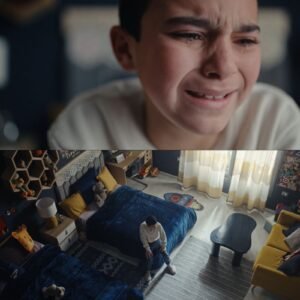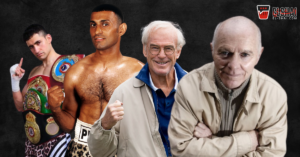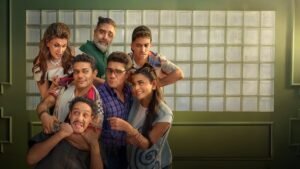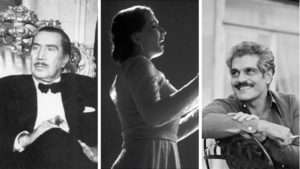When I first heard about Lam Shamseya, I was relieved. Finally, a mainstream Egyptian series was addressing childhood sexual assault. It felt like a long-overdue conversation, one that I wish had existed when I was a child.
But after watching the first episode, I realized something: as much as I appreciate the artistic approach and respect the creators’ efforts, I can’t keep watching.
Not because the show isn’t good—on the contrary, it’s commendable—but because it hurts.
And that’s okay.
It’s Okay to Avoid Triggers—But It’s NOT Okay to Demand We Avoid These Topics
Survivors of childhood sexual assault carry their trauma in ways that can be unpredictable. Triggers can be sudden and overwhelming.
While Lam Shamseya is an important series, it is also one that can deeply affect survivors, bringing back memories they have buried for years.
That’s why I’m stepping away from watching. But that does not mean I think the series should be canceled. Awareness is crucial. The more we talk about this, the more we challenge the culture of silence that has harmed so many.
Society’s Reaction to Lam Shamseya Shows a Bigger Problem
While many are praising the show for addressing a difficult topic, the backlash has also been telling. Some deny that this kind of abuse happens at all.
Others insist we shouldn’t talk about it. Some even argue that the scene of Shahin’s character hugging the child was innocent and that Amina Khalil was exaggerating.
These reactions expose a deep-seated issue in our society: our refusal to acknowledge that childhood sexual assault happens, often at the hands of people we know and trust.
As children, we are conditioned to ignore discomfort. We are forced to hug and kiss relatives even when we don’t want to. We are taught that family members are always safe, even when they are not. And worst of all, we are taught to stay silent.
The denial and dismissal we see in the reactions to Lam Shamseya are familiar to many survivors, including myself.
Why I Can’t Watch Lam Shamseya—Because It’s Too Close to My Own Story
I was assaulted by a family member everyone loved and respected. The grooming started early, masked under favoritism. One sibling would be adored, while another would be treated like an afterthought. As children, we craved acceptance, and when attention came—even through harassment—it felt like belonging.
I didn’t recognize it as sexual assault at first. I just knew it made me feel weird. It took me over 20 years to say the words out loud.
When he died, I felt nothing. Everyone else was grieving, crying, remembering his kindness. But I was numb. At the time, I didn’t even recall what he had done—I had suppressed the memory so deeply that I thought I was just emotionless. And I lived my life accordingly.
I wish there had been a series like Lam Shamseya back then. I wish someone had taught me what sexual harassment was, what grooming looked like, that I had the right to say no.
Even when I went to a psychologist at 14 and tried to open up about what had happened, she dismissed me. She told me there was no way this was true and prescribed me antidepressants. I later found out they weren’t even suitable for someone under 25. I took triple the recommended dose until I broke down and convinced her I had imagined it out of jealousy.
This experience isn’t unique. Many survivors struggle with being dismissed when they seek help. Mental health professionals, especially in societies where sexual abuse is rarely discussed, often lack the training to handle such cases. Instead of validating survivors and guiding them toward healing, they risk deepening the trauma by reinforcing doubt and denial. Survivors need to be believed. And mental health professionals need better education on handling childhood trauma responsibly.
How Lam Shamseya Handled the Topic Responsibly
One of the biggest concerns raised about the show was how the child actor, Ali Beialy, was protected during filming. People questioned whether it was ethical to have a child perform such a role.
Director Karim El Shenawy and the team took this concern seriously. They worked closely with Sara Aziz, the founder of Safe Egypt, to ensure Ali’s emotional and psychological safety throughout the process. Aziz, a member of the National Council for Childhood and Motherhood, was present on set to monitor and guide the team.
Ali wasn’t just a child playing a role—he was treated with immense care. The entire cast and crew received training on how to handle the subject matter ethically, ensuring that Ali never experienced any real emotional harm. This level of responsibility is rare in the entertainment industry, and it deserves recognition.
The Role of Safe Egypt and Sara Aziz
Safe Egypt is one of the leading organizations advocating for child safety in Egypt. Founded by Sara Aziz, it provides training, awareness programs, and support for survivors of child abuse.
Through Safe Egypt, families and communities are educated on how to protect children from harm, recognize signs of abuse, and respond appropriately. The organization played a crucial role in making sure Lam Shamseya handled its subject matter with sensitivity, proving that difficult topics can be addressed ethically in media.
What Parents—and Society—Should Be Doing
If a child confides in you about sexual harassment or assault, listen to them. Believe them. Do not dismiss them as dramatic or confused. Here’s what you can do:
1. Report It to the Authorities
There are official ways to report child harassment in Egypt:
- Call the National Child Helpline at 16000 (free, 24/7).
- Send a message via WhatsApp to 01102121600.
- Report the case through the National Council for Childhood and Motherhood’s Facebook page.
- File a report on their official website.
2. Educate Children About Boundaries
Teach kids that they don’t have to hug or kiss anyone they don’t want to. Explain to them, in age-appropriate ways, what sexual harassment is and what to do if they feel uncomfortable.
3. Support Survivors
If someone opens up about their assault, do not minimize their experience. Do not tell them to “forget about it.” Help them find the support they need, whether that’s therapy, a support group, or simply a safe space to talk.
4. Change the Culture of Silence
Stop telling kids to trust adults blindly. Stop silencing uncomfortable conversations. The more we talk, the more we can protect future generations.
Final Thoughts
Lam Shamseya is a vital series. It’s shedding light on an issue that has remained in the shadows for too long. The creators have handled it with care, and I respect them deeply for that. But as a survivor, I cannot watch it.
And that’s okay.
It’s okay to protect yourself. It’s okay to acknowledge that some things are too painful to relive. But what’s not okay is denying that this happens, dismissing survivors, and refusing to educate ourselves and our children.
We need to keep talking about this. We need to support those who are bringing awareness. We need to demand better mental health training for professionals handling trauma cases. And we need to support organizations like Safe Egypt that are doing the work to create a safer future.
If you’re a survivor, know this: You are not alone. You are believed. And you deserve to heal—on your own terms.





